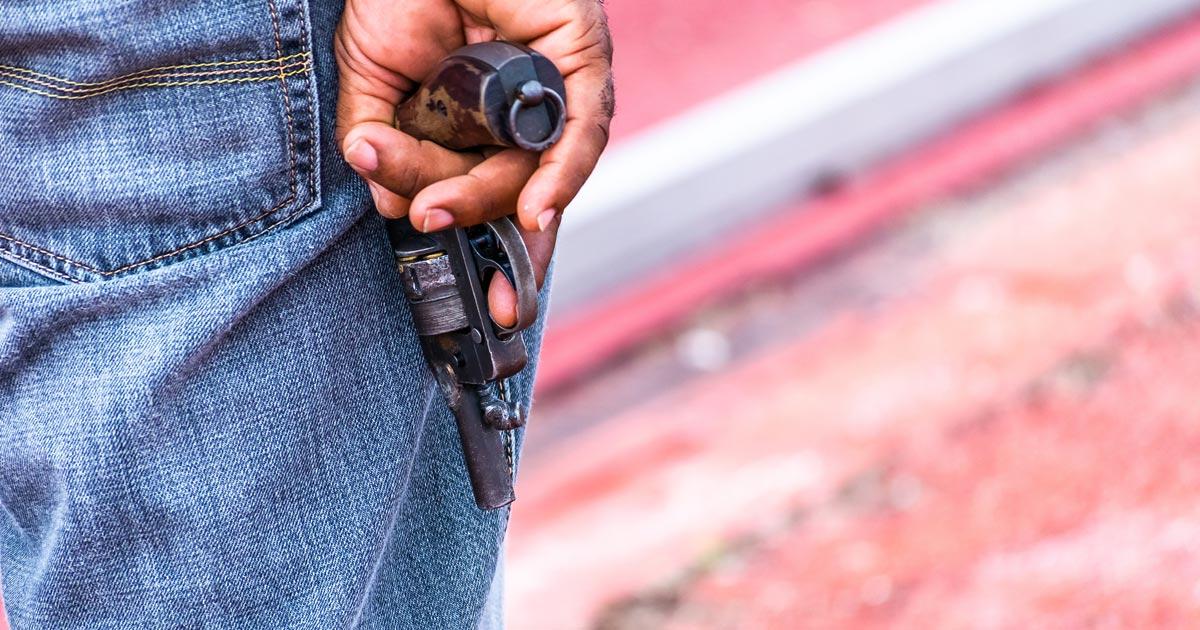
Many are still repulsed by the monstrous actions of Salvador Ramos who brutally gunned down nineteen students and two teachers in the nation’s second-deadliest mass shooting. This act of barbarity has rightly aroused intense emotions, but emotional responses to mass shootings won’t make them less frequent. In the aftermath of a mass shooting, the knee-jerk response is to lobby for more aggressive gun control, and let’s be realistic: even conservative supporters of the Second Amendment are sympathetic to these recommendations because no sane person wants a deranged individual to murder innocent children.
Nevertheless, emotional outbursts must be tempered by logic. Critics surmise that stringent measures will curb gun crimes; however, the evidence that stricter gun laws reduce gun crimes is far from conclusive. In the United States, New York and Chicago have high homicide rates despite punitive gun laws, whereas places like Maine and Vermont, with high rates of gun ownership and lax gun laws, respectively, have relatively low rates of gun violence.
The failure to adequately dissect data on gun-related deaths has created a storm of confusion because key facts are often omitted in public debates. Although gun control is framed in the context of raising the threshold for gun ownership to prevent homicides, the reality is that suicides account for a substantial percentage of gun-related deaths. In 2018, firearm suicide comprised 49.3 percent of total firearm deaths, and white men were the primary victims. However, homicides induced by firearms were the highest in the black male population.
Victims of suicide regularly suffer from mental health challenges that lead them to kill themselves. So, the failure to address mental health problems is the real culprit, rather than guns. Additionally, even if gun control makes it harder for people with mental health troubles to obtain guns, this would not prevent deaths because they can always use other means to commit suicide. Moreover, discriminating against mentally ill people when deciding to grant firearms would be futile, since most mentally ill people are unlikely to be offenders. In fact, psychiatrist Eric B. Elbogen has bluntly stated that social ills compound the severity of mental illness.
“If a person has a severe mental illness, (they) may have other risk factors for violent behavior,” he notes. “So, it may not be mental illness that is driving the violence at all, but rather factors like having been abused as a child, being unemployed, or living in a high-crime neighborhood.”
Neither would stricter regulations put a dent in black homicide rates. Criminals procure guns from the black market, corrupt dealers, and fellow criminals. According to the Department of Justice, 43 percent of offenders secure weapons from the black market and only 0.8 percent of criminals acquire firearms from gun shows. Because criminals are so adept at identifying cracks in the system to purchase guns, adding additional layers of regulation would fail to stem gun crimes and limit gang-related mass shootings. And notwithstanding the hype surrounding school shootings, gang-related incidents are more frequent.
Likewise, another blow to the gun control lobby is background checks’ failure to avert shootings. One study published in the Annals of Epidemiology concludes that the implementation of such policies “was not associated with a net change in the firearm homicide rate … in California.”
For Massachusetts, the evidence is quite similar, with research not only revealing that background checks’ impact on gun violence is unclear but also that the denial of firearms licenses has no appreciable impact on violent crimes. Determining the probability that one will commit violent crimes based on a background check is a mammoth task. Some mass shooters have a track record of delinquency, but having a record does not automatically predict that someone will attack a school. Furthermore, mass shooters are usually isolated individuals, so because we lack data on their innermost thoughts, it’s quite difficult to predict the next mass shooter.
Even more interesting is that despite the media’s emphasis on mass shootings, they account for a measly 0.5 percent of gun fatalities. Most mass shootings are a consequence of domestic disputes. Family-breakdown denialists may be unwilling to confront the issue, but family instability is a prominent driver of school shootings. Children raised in dysfunctional families are more likely to exhibit antisocial behavior and abuse the law, so it is unsurprising that most mass shooters are victims of family instability.
Based on media accounts, the Uvalde shooter, Salvador Ramos, came from a broken home and felt unloved by his father. Due to these feelings of resentment they harbor, mass shooters have an intense desire to achieve notoriety by punishing other people. Gun violence is a symptom of a larger problem: family breakdown. By fixing the family, we can substantially reduce gun violence and other plagues. However, doing so requires an overhaul of our present culture that belittles the significance of marriage and family stability.
But in the short term, we can offer a suggestion to tame the lethality of mass shootings. If schools were to beef up security by training teachers and other officials in the art of marksmanship, then prospective school shooters would hesitate before attacking innocent children. Mass shootings are more likely in gun-free zones because the threat of retaliation is lower. So obviously, mass shooters are going to target places like schools and movie theaters, where people are unlikely to be armed.
This idea might sound unpalatable, but it is a better option than pursuing insensible gun control policies. Maybe Americans should study the abysmal failure of gun control in Jamaica to appreciate why gun control doesn’t work: in 2016, Jamaica established the Firearms Licensing Authority to inhibit the flow of illicit weapons, yet in 2021, Jamaica was described as the most murderous country in the Latin America and Caribbean region. Unscrupulous people procure guns with ease in Jamaica and with the consent of the FLA.
In an article published on March 10, 2022, The Gleaner noted that based on a report released by the Integrity Commission, the FLA knowingly granted permits to criminals: “The Integrity Commission said, the FLA board which was appointed in 2016 after the Jamaica Labour Party won state power ‘acted with impropriety in the issuance and/or grant of firearm user licences to persons of questionable character during the period 2016–2018.'”
Gun violence is like a disease poisoning America’s social fabric, but unfortunately, investing in gun control won’t neuter the problem, as the case of Jamaica so aptly demonstrates.





